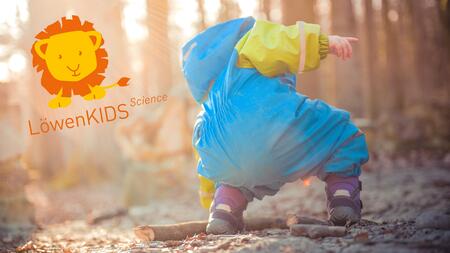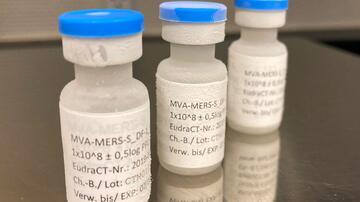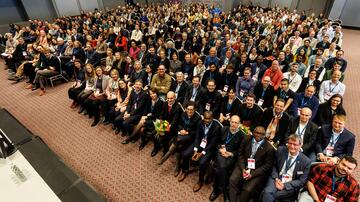“LoewenKIDS” help scientists in a COVID-19 study
Currently, little is known about children and their susceptibility to the new coronavirus. It has been observed that young children have rarely presented with COVID-19 up to now. No specific investigations have been conducted as to how many children have already contracted the virus and overcome the infection without any remarkable symptoms. In a DZIF project, scientists now intend to investigate this with the help of “LoewenKIDS”.
LoewenKIDS – approximately 500 children participate in a long-term study
At the end of 2014, the Helmholtz Centre for Infection Research (HZI) initiated a long-term study to assess young children with regard to developments in their immune systems and interactions with infections. The study accompanies children from time of birth up until they enter preparatory school. The parents of these children ensure that nasal swabs and stool samples are sent to the researchers at the slightest sign of infection. Currently, the project includes approximately 500 children aged between three and six years, who are now also participating in a corona research project at the DZIF.
“The “LoewenKIDS” and their parents who have kindly dedicated themselves to this research, give us the unique opportunity to easily investigate how the virus spreads in this age group,” explains the founder of “LoewenKIDS”, Prof. Rafael Mikolajczyk, who is currently at the University Hospital of Halle. Obtaining information on whether children possibly have asymptomatic infections, and in how many cases, is critical as they could pose a potential risk to adults.
The COVID-19 study
In order to find out if young children have infections that are symptom-free, the scientists will first take samples from the entire LoewenKIDS cohort (approximately 500 samples) at two different points in time and test these for acute SARS-CoV-2 infection. “We will take the first samples now and the second ones presumably in June/July,” explains Prof. Till Strowig, Head of the project at the HZI. “The date for taking the second round of samples will depend on the course of the pandemic. If a second wave of infection becomes foreseeable, it will certainly be interesting to obtain the samples at that critical point in time.” The nasal swabs sent in by the parents will be tested for the virus by means of a PCR method. Testing will take place at the HZI in collaboration with a team led by Dr Gisa Gerold from Twincore in Hannover.
Additionally, the parents of these approximately 500 young children will receive an extensive questionnaire in which to record any symptoms of cold their children and other family members are having as well as potential contacts to people with coronavirus infection. “Our primary concern in this study is to determine the number of infected young children,” emphasizes Till Strowig. “We can subsequently use this data to extrapolate the potential level of risk young children have of potentially spreading the virus. Young children in particular are currently being kept away from their grandparents so as to not to risk their infection. The results can also contribute to decision-making with regard to the opening and closing of kindergartens,” says Till Strowig, who is experiencing the situation first-hand with his own two young children.
After these tests have been completed, the scientists plan to conduct antibody tests on the “LoewenKIDS”, which will show whether the young children had an infection and developed antibodies, independent of the time of the actual virus testing. These antibody tests will presumably be conducted in 2021.




